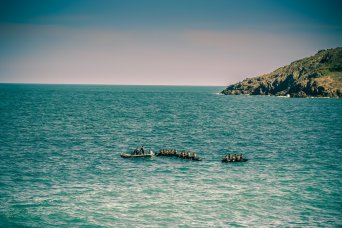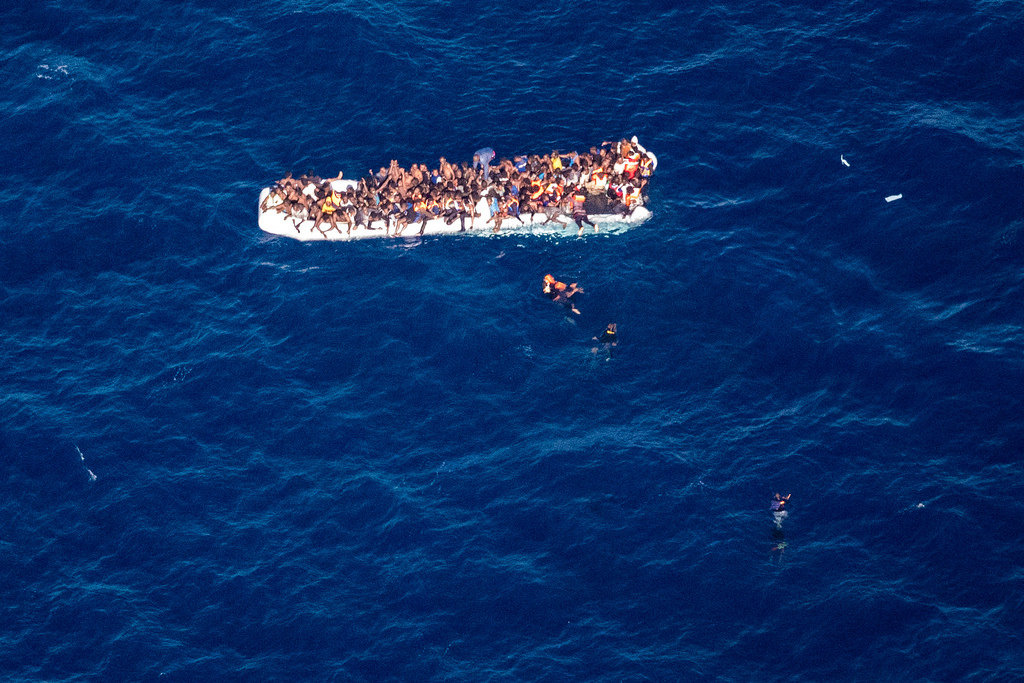- About
- Topics
- Picks
- Audio
- Story
- In-Depth
- Opinion
- News
- Donate
- Signup for our newsletterOur Editors' Best Picks.Send
Read, Debate: Engage.
| topic: | Refugees and Asylum |
|---|---|
| located: | Italy |
| editor: | Francesco Ferasin |
The prospective immigration agenda of Brothers of Italy – the winning party of the 25 September election which is about to take power - is clear: people who try to enter the country illegally will be pushed back out.
NGOs and reception hotspots are no longer welcome in Italy, as iterated in the campaign rhetoric of Giorgia Meloni, the far-right and post-fascist political leader poised to become Italy’s next Prime Minister. If true, such a stance could present an array of problems, seeing as Italy’s shores constitute the main destination for migrants from North Africa.
Last week, a statue of a young immigrant sleeping on the street near the Vatican was vandalised so badly that it had to be removed. Such events reveal more about the national sentiment towards immigration than political statements made over the last few years; above all, they reflect a social discontent which far-right politicians have successfully tapped.
An example of how a right-wing party can affect immigration policies in a government coalition can be seen in the first mandate of Giuseppe Conte, which was supported by the populist League’s party headed by Matteo Salvini.
In 2018, the Parliament issued the so-called “Security Decrees” to regulate immigration flows. While the original purpose of the decrees was to reform national immigration policies, they gained popularity among far-right voters and prompted anti-immigrant propaganda as their implementation would impose a dramatic reduction of funds for the immigration system, weaken humanitarian assistance services and introduce hurdles to the asylum application process.
As a result, the decrees led to an increase of irregular migration flows into the country - the opposite effect of what the law was expected to achieve.
Following a rejection vote by the European Court in 2020, the Security Decrees had to be modified, and the previous legal framework was partially recovered.
Moderate in tone, but not in intentions, Meloni avoids making comments regarding her actual ambitions at the moment. Yet her true objectives are no secret: the first point of the centre-right coalition’s programme, which includes Salvini’s League, is to reinstate the Security Decrees.
An additional right-wing objective is to intensify dialogue with Libya’s security authorities to build new refugee camps on African coasts, rather than on national soil, in order to stem the flow of migrants trying to reach Italy’s southern islands by boat.
On top of that, Meloni has frequently referred to a “great replacement” theory, which regards immigrants as a threat to the demographics of a predominantly white, Christian population. Her proposals from the past few years were even more specific: to “block” boats coming from Africa by “sinking them,” among other drastic measures.
However, Meloni faces two obstacles for her “security” plan: time and Europe.
Firstly, Italian governments last an average of 414 days, during which Meloni will face pressure to address more pressing issues like unbridled inflation and the energy crisis. Secondly, Italy is expected to receive over €200 billion from the European Recovery Fund, and Meloni’s future government wishes to make a good impression on Brussels.
Ursula von der Leyen, the president of the European Commission, has already warned Italy that the EU has “the tools” to deal with Meloni if things were to go in a “difficult direction,” hinting at the power of averting the flow of investments generated by the Recovery Fund in case democratic rights were obstructed.
The European “threat,” as defined by Meloni, could force her hand in making her political agenda less antagonistic to people seeking asylum.
Image by Jametlene Reskp.

